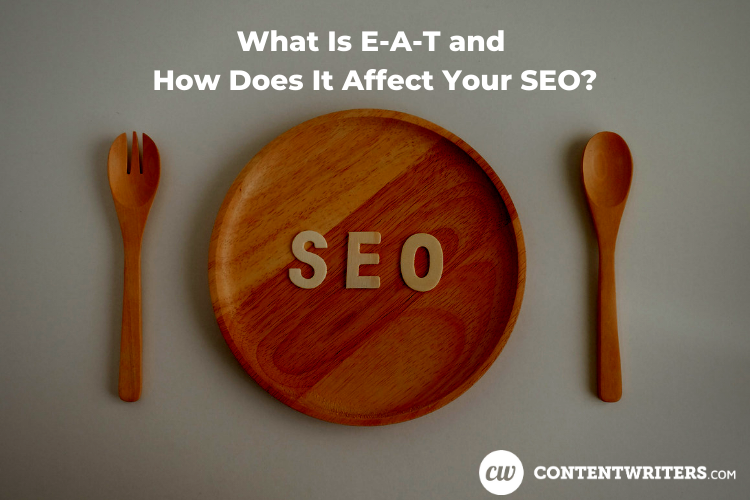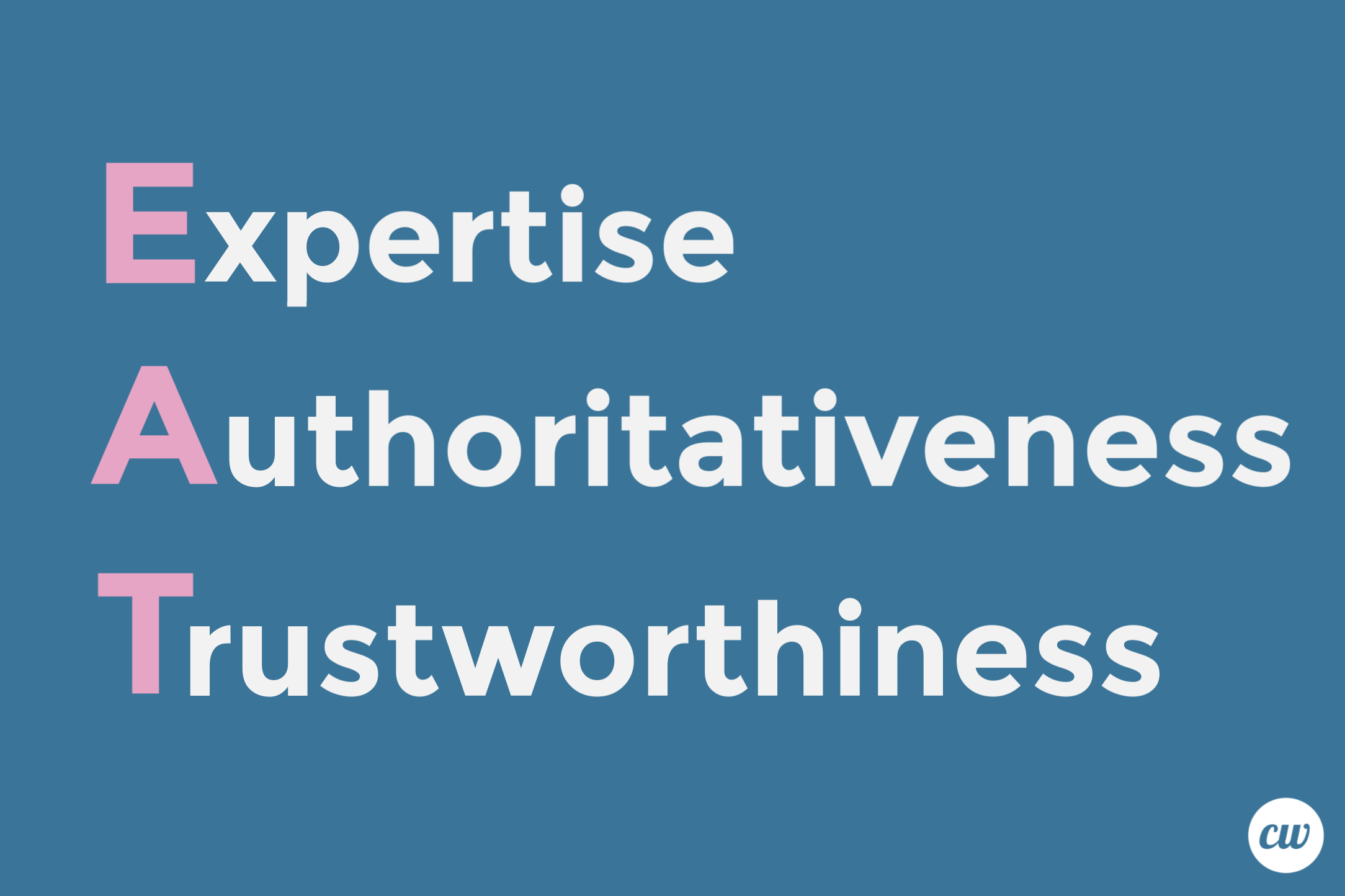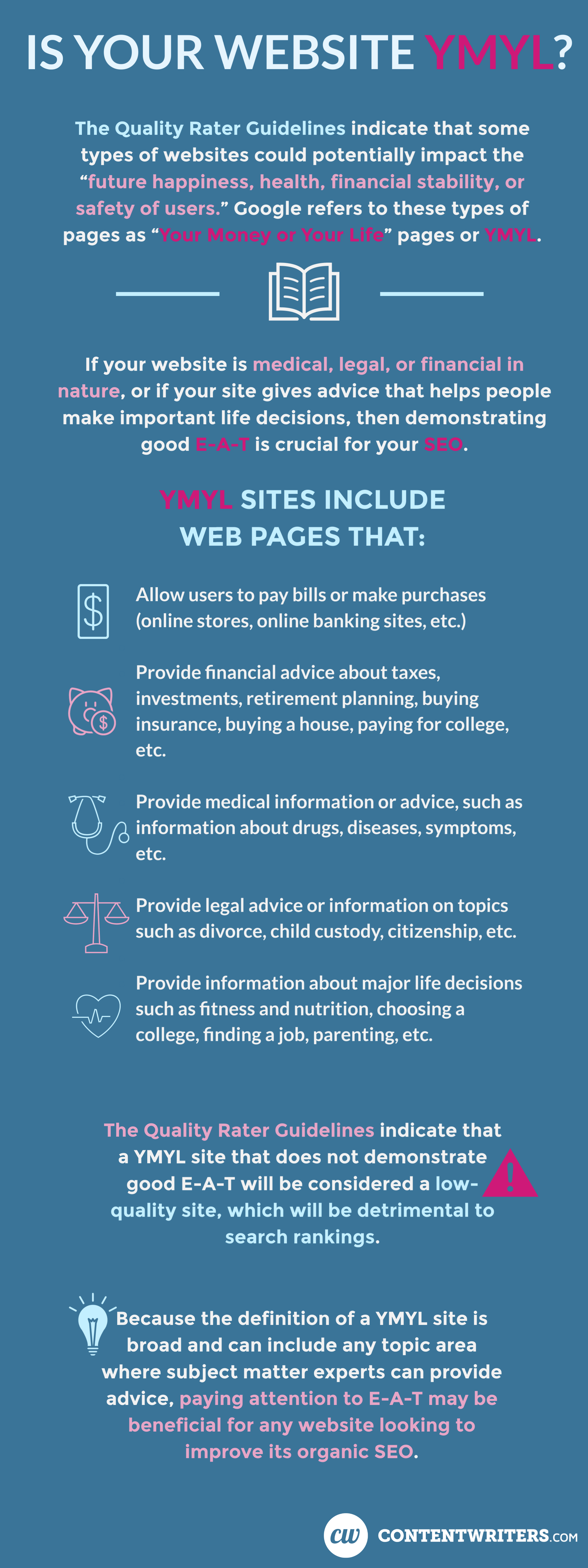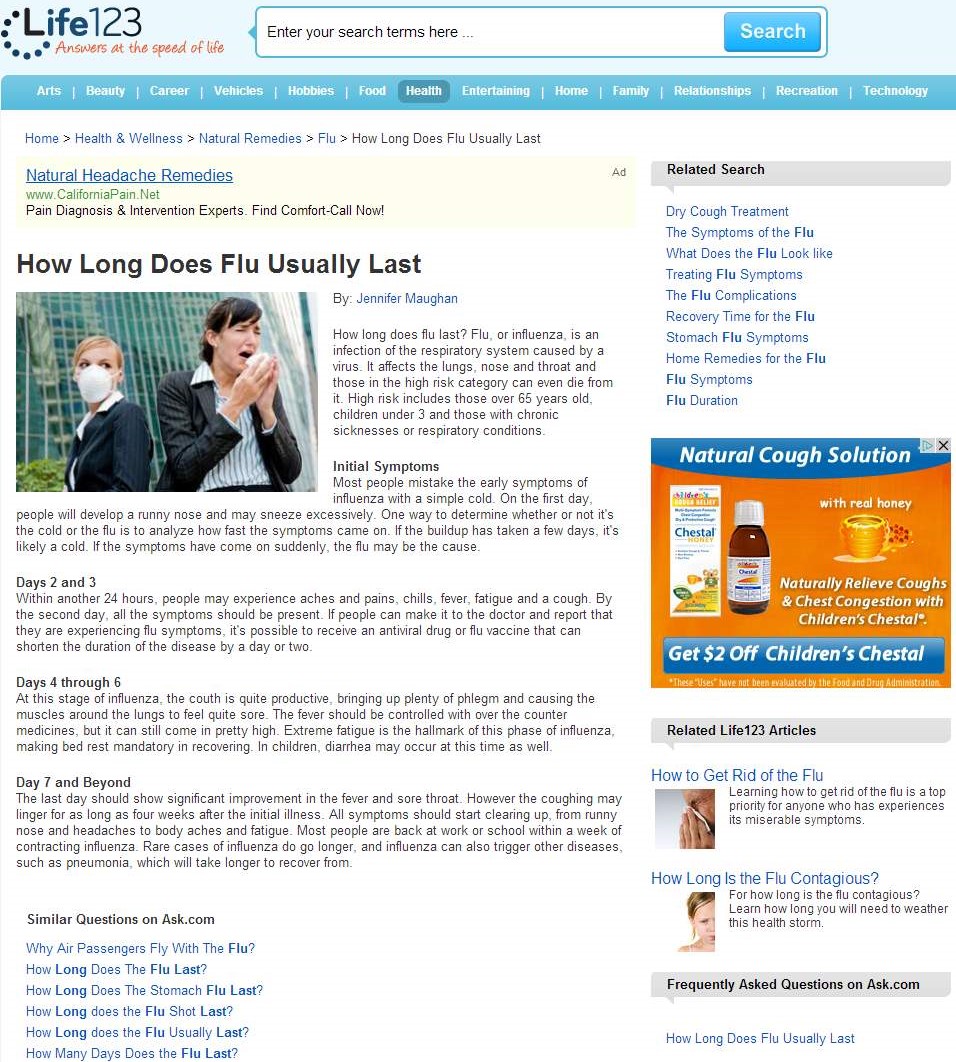
What Is E-A-T and How Does It Affect Your SEO?
Does your website demonstrate E-A-T? The concept of E-A-T — expertise, authoritativeness, and trustworthiness — is discussed thoroughly in Google’s Quality Rater Guidelines, which provide content creators and webmasters with key insights into what Google considers high-quality content. Paying attention to your E-A-T, both on and off your website, may help improve your search rankings.

The Role of E-A-T in Fighting Disinformation
In February 2019, Google published a whitepaper explaining its commitment to tackling the intentional spread of misinformation across its products, including Google Search, Google News, YouTube, and Google’s advertising platforms.
Google is proactively fighting disinformation by using algorithms that focus on “measurable signals” that indicate whether a webpage displays expertise, trustworthiness, or authoritativeness in relation to the topic it covers. While Google’s ranking system does not attempt to verify the accuracy of the information presented, it is designed to identify sites that display high levels of E-A-T.
Evidence suggests that since early 2017, many websites have seen drops in traffic following core Google algorithm updates that were likely related to E-A-T. If you believe your website has been negatively impacted by a core algorithm update, Google recommends that you familiarize yourself with the concept of E-A-T and with the Quality Rater Guidelines.
What are the Google Quality Rater Guidelines?
Google contracts with third-party Search Quality Raters all over the world. These raters provide Google with feedback on how their algorithms are working. Google raters are highly trained, particularly when it comes to evaluating whether a web page demonstrates strong E-A-T.
Search raters have no control over how individual pages rank; rather, their feedback lets Google know if their system is working as intended.
Google first published the Quality Rater Guidelines in 2013 to provide transparency into how Google works. The guidelines are updated frequently as Google gains a greater understanding of what users want. Major updates to the guidelines are published to the public, with the most recent update released on September 5th, 2019.
Familiarizing yourself with the guidelines may help you determine if your content demonstrates strong E-A-T and identify areas where it may need improvement. (Set aside some time — the document is 167 pages!)
Google has stated that these guidelines can help webmasters and content creators better understand what Google looks for in web pages. If you’ve ever wondered what Google considers “high quality” content to be, the Quality Raters Guidelines explain this in detail as well as being a good source of information about E-A-T.
E-A-T and YMYL Sites
The Quality Rater Guidelines indicate that some types of websites could potentially impact the “future happiness, health, financial stability, or safety of users.” Google refers to these types of pages as “Your Money or Your Life” pages (or YMYL), a category that was introduced in 2014.
YMYL websites include those related to financial transactions or information, medical and legal information, and news articles and other information pages “that are important for having an informed citizenry.”
For these YMYL pages, Google understands that users expect them “to operate with our strictest standards of trustworthiness and safety.” For this reason, E-A-T is given more weight in Google’s ranking system when it comes to YMYL pages.

Two Types of E-A-T
There are 2 types of E-A-T that Google takes into consideration:
- Website / publisher E-A-T
- Author E-A-T
It’s important to pay attention to both author E-A-T and website E-A-T. If your website has a lot of demonstrated authority, but you’re hiring writers who aren’t subject matter experts, you could hurt your overall E-A-T.
Think about it: If you’re looking for information about nutrition, would you rather read an article written by a nutritionist with 10 years of clinical experience, or one written by an SEO copywriter hired to write content targeting certain keywords? The latter approach may have worked fine in the past, but with Google’s new emphasis on E-A-T, algorithms will prioritize articles written by people who are known subject matter experts.
The Quality Raters Guidelines are full of examples of both high-quality and low-quality content from real YMYL websites. Consider the following examples:

High-quality medical content: an article about meningitis from the Mayo Clinic website. According to the QRG, the content appears on a trustworthy and authoritative website for a nonprofit medical research group. The Mayo Clinic has a reputation for being one of the best web resources for medical information.
Low-quality medical content: an article about how long the flu lasts from a website called Life123. This article lacks E-A-T: there is no evidence that the author has medical expertise. Because this is a YMYL article of a medical nature, a lack of expertise leads to a low ranking.

How to Improve E-A-T
Now that we understand what E-A-T is and why it’s important, how can you go about improving your E-A-T?
While there are many steps you can (and should) take to demonstrate E-A-T on your website, that likely won’t be enough for Google to consider you a subject matter expert. Improving your E-A-T involves demonstrating your expertise both on and off your online properties.
If you aren’t already an expert in your field, it’s going to be a challenge to establish E-A-T. You may need to hire or partner with subject matter experts while you take steps to get more education or certifications in your industry, join professional organizations, conduct or publish original research, attend conferences, and otherwise grow your expertise.

Improving E-A-T Off-site
Demonstrating your authority and expertise on other online properties is also important. This can be difficult, but there are several approaches you can take.
Get Good Reviews
What people say about your business online matters. Again, make it a regular business practice to ask satisfied customers to leave reviews on applicable websites, such as Yelp, Amazon, Google My Business, etc. Of course, getting good reviews starts with providing good customer service and a good user experience, so make these a priority if they aren’t already.
An occasional poor review won’t hurt as long as the overall public sentiment toward your business is positive. If you do get a bad review, respond professionally, take the conversation offline, and attempt to resolve the issue if it’s a legitimate complaint.
When looking at your reviews, look at your top competitors’ reviews as well. If they have significantly more reviews than you do, it could be an indication that they are a more recognized authority in the field.
Try Wikipedia
If possible, get a Wikipedia page for your business. This is difficult, as your business must meet Wikipedia’s standards for notability. Significant coverage in reliable sources is required to merit a stand-alone article.
If getting a page isn’t possible, a positive mention on another Wikipedia page may help.
You may be able to edit Wikipedia pages to include a mention of your company, but make sure these mentions are warranted. If it looks like you’re just self-promoting, your link will be removed.
Get Mentions on Other Well-Known Sites
Links from other authoritative sites are key for good E-A-T. Google is very good at determining which links and mentions count as authoritative, so this doesn’t mean you can just pay for links to improve your E-A-T. The key is to get mentioned on authoritative sites that want to recommend you or your business. These can be difficult to get, but it’s important to make the effort in order to establish yourself as an expert in your field.
If you’re struggling to get online mentions, try publishing original research in your field that others will naturally want to link to. You can also connect with journalists on websites such as HARO (Help a Reporter Out) to be quoted in articles in your field.
Again, this comes back to being trustworthy. There are no shortcuts to E-A-T, and establishing yourself as an expert takes time. Network in your industry, attend conferences, build positive relationships both on and off-line, and develop content that provides great value. Make it a priority to do everything you can to increase your authority and build trust with customers, and you’ll naturally increase your E-A-T over time.
She is the Director of Content for a medical marketing agency, and is certified in inbound marketing, content marketing, email marketing, site structure, and keyword research.




